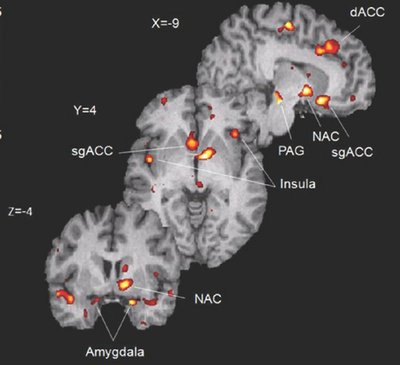Placebos provide pain relief … for some people
Why is it that the placebo effect - the idea that taking fake medicine can make someone feel better - seems to work for some people but not others? According to researchers at the University of Michigan (U-M), it all comes down to the personality of the person taking it.
The work, which was completed by a team of U-M Medical School researchers and their colleagues at the University of North Carolina and University of Maryland, has been published in the journal Neuropsychopharmacology. U-M Professor Jon-Kar Zubieta and his team have been studying the placebo effect for a decade; this is the first time that their research has linked established personality traits with an individual’s susceptibility to the placebo effect as a painkiller.
The research was conducted with almost 50 healthy volunteers. Each person was subjected to psychological testing to help identify their strongest personality traits. They then had to lie in a PET machine.
The volunteers were told that they were going to experience pain from salt water being injected into their jaw muscles, and that they would also be sporadically injected with a ‘painkiller’ (actually the placebo). This occurred for 20 minutes, with the volunteers stating throughout how effective they thought the painkiller was.
The participants’ bodies’ chemical responses were also measured throughout the process. The PET machine scanned images of each person’s brain, which allowed the researchers to monitor the release of the brain’s natural painkillers (‘endogenous opioids’). The researchers also drew blood from the participants and measured levels of a stress-induced chemical called cortisol.
The four personality traits which were shown to have an impact on the placebo response were resiliency, straightforwardness, altruism and anger/hostility; these traits occurred in about one-quarter of responses. Not only did people with the first three traits rate their level of pain as less intense when they were given the placebo, but the placebo actually appeared to activate the endogenous opioids, thus causing the brain to deliver its own pain relief. Those who had angry or hostile personalities, on the other hand, did not experience such an effect. The cortisol levels were not affected in either case.

This is good news for people with resilient personalities, with Professor Zubieta noting that this response to pain may translate to an ability to withstand other stressful and difficult situations.
“People with those factors had the greatest ability to take environmental information - the placebo - and convert it to a change in biology,” he said.
The study will also be beneficial to researchers involved in clinical trials, helping them to determine whether responses to treatment are legitimate or if it is just the placebo effect in play.
The experiment now needs to be repeated in larger, more diverse groups for confirmation. Professor Zubieta and his team then hope to continue the research in people with depression and to continue to explore how genetics, as well as personality, influence placebo response.
Solar-powered reactor uses CO2 to make sustainable fuel
Researchers have developed a reactor that pulls carbon dioxide directly from the air and converts...
Scientists simulate the effects of an asteroid collision
How would our planet physically react to a future asteroid strike? Researchers simulated an...
2024 was warmest year on record, 1.55°C above pre-industrial level
The World Meteorological Organization says that 2024 was the warmest year on record, according to...




